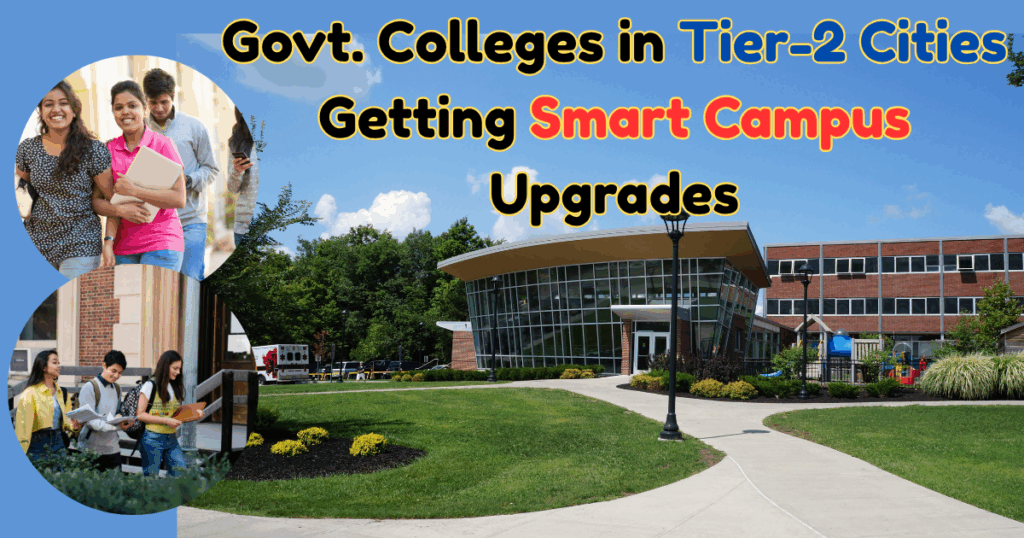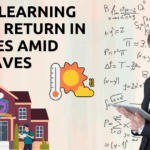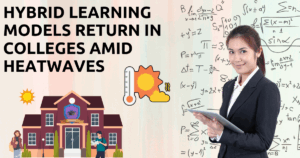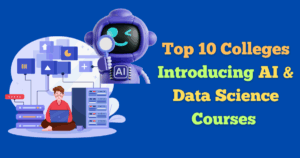Govt. Colleges in Tier-2 Cities Getting Smart Campus Upgrades: The idea of leveraging Tier-2 cities is not new, but as the high-end form of a smart education system, the smart campus has received increasing research attention around the world. Owing to the multidisciplinary nature of the smart campus, the existing research is mostly one-ended on either the state-of-the-art technologies or the innovative education concepts but lacks a deep fusion view on them and omits the smart campus implication on other smart city domains.
Govt. Colleges in Tier-2 Cities Getting Smart Campus Upgrades
Along with technology development, people’s lifestyles and working habits have undergone a tremendous transformation, as well as the ways of learning. As the high-end form of a smart education system, the smart campus came into reality and has received more and more attention around the world. Smart campus creates a smart learning environment for the citizens, transforming them into a smart workforce, making it an integral part of the smart city framework.
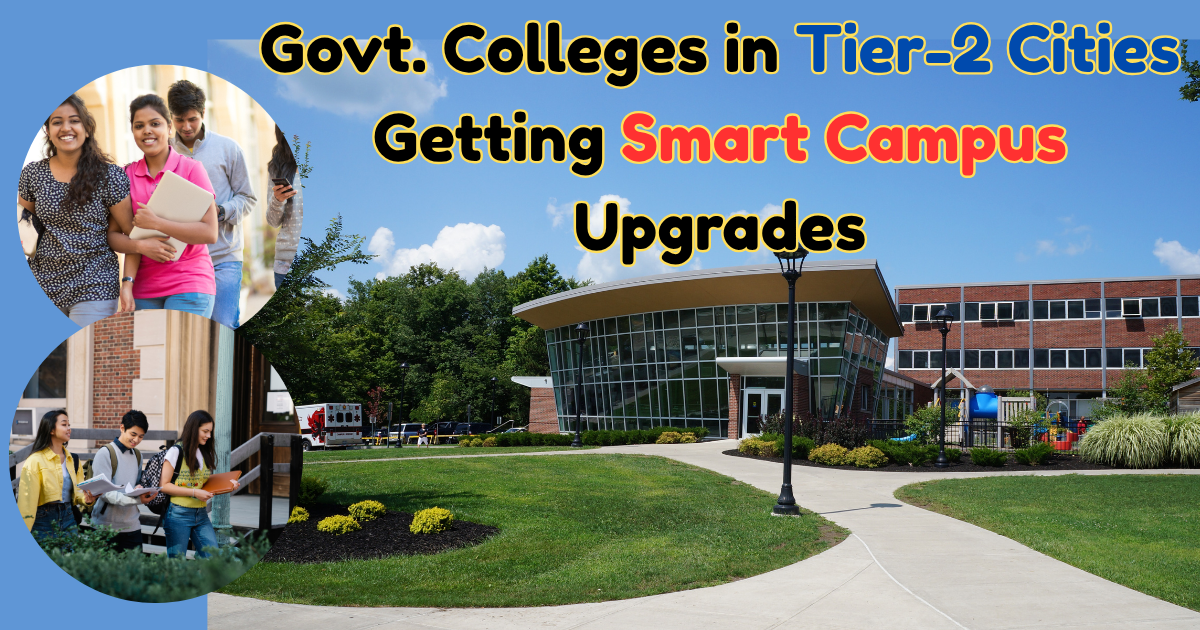
Challenges and the Need to improve faculty in Tier-2 Colleges
Some common challenges faced by Tier-2 colleges include
- Limited or no Access to professional development
- Inadequate resource
- Outdated teaching methodologies
These issues result in faculty who may not fully address students’ needs or deliver effective instruction.
The Role of the faculty in Tier-2 Colleges
While efforts have been made to improve teaching in Tier-2 colleges, this has often been focused on infrastructure and curriculum. The development of the faculty, unfortunately, remains a neglected area. Without strong and well-trained faculty, even the best curriculum cannot deliver its intended result.
Strategies to improve faculty quality in Tier-2 Colleges
- Continuous Professional Development
This ensures that teachers stay updated with new knowledge of trends and technologies in the field of education. For example. Colleges can organize annual seminars on the use of new technologies to improve the educational system and process.
- Mentorship Programs
Suppose a senior professor can sit down with a relatively newly appointed lecturer to explain how to communicate with students in large classrooms; he or she would take a situational approach, explaining how they should do it.
- Collaborative Research Opportunities
Encourage co-authorship of grant applications and proposals across departments and with other institutions. This not only enriches the academic environment but also keeps teachers motivated and interested in the methodologies they use to teach.
- Industry-Academia Partnerships
Facilitate relationships between your college and companies, allowing faculty to gain experience and knowledge from real-world scenarios to enhance their teaching.
- Curriculum Involvement
Involve faculty in the development of the curriculum and make them co-responsible for the implementation of the current curriculum. It also provides feedback about students who need improvement and allows faculty to be more accountable to these students.
The Impact of quality Faculty on Students and Management
Students benefit from enthusiastic, knowledgeable, and motivating teachers who help unleash their potential and prepare them for successful careers. For employers, quality faculty leads to improved rankings, better student outcomes, and increased attractiveness to prospective students and faculty.
Smart Campus Technologies
The development of the smart campus would not be possible without the innovation in technology.
1. Cloud Computing
Cloud computing is a distributed computation model that enables convenient, on-demand network access to a shared pool of configurable computing resources that can be rapidly scaled and provide minimum interaction with the supplier.
2. Internet of things
The prospective benefits of developing technology in smart campuses mainly lie in three aspects: first, tracking the student’s learning progress and taking informed actions; and second, smoothing the teaching and learning process. And third, emotional recognition based on the technology if adopted in a smart campus.
3. Artificial Intelligence (AI)
AI is the computational science of making machines or systems learn from experience, adapt to new inputs, and perform human-like tasks, which would be a suitable technique to solve problems where a solution can hardly be generated through analytical analysis.
4. Augmented reality (AR)
AR is an emerging form of experience in which the real world is augmented by the virtual content from a computer, which allows seamless overlay and mixing between computer-generated content and our real-world perceptions.
Conclusion
In this article we discussed the government colleges in Tier-2 cities getting smart campus upgrades. The idea of leveraging Tier-2 cities is not new, but as the high-end form of a smart education system.

Mark Delyn focuses on education, learning methods, and academic trends. Her work supports students, educators, and lifelong learners with practical and timely insights.

